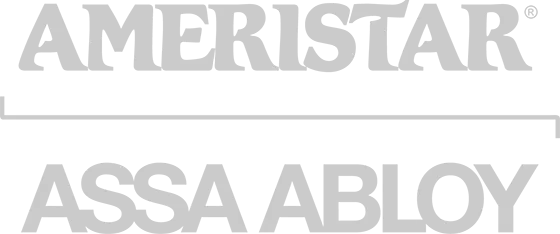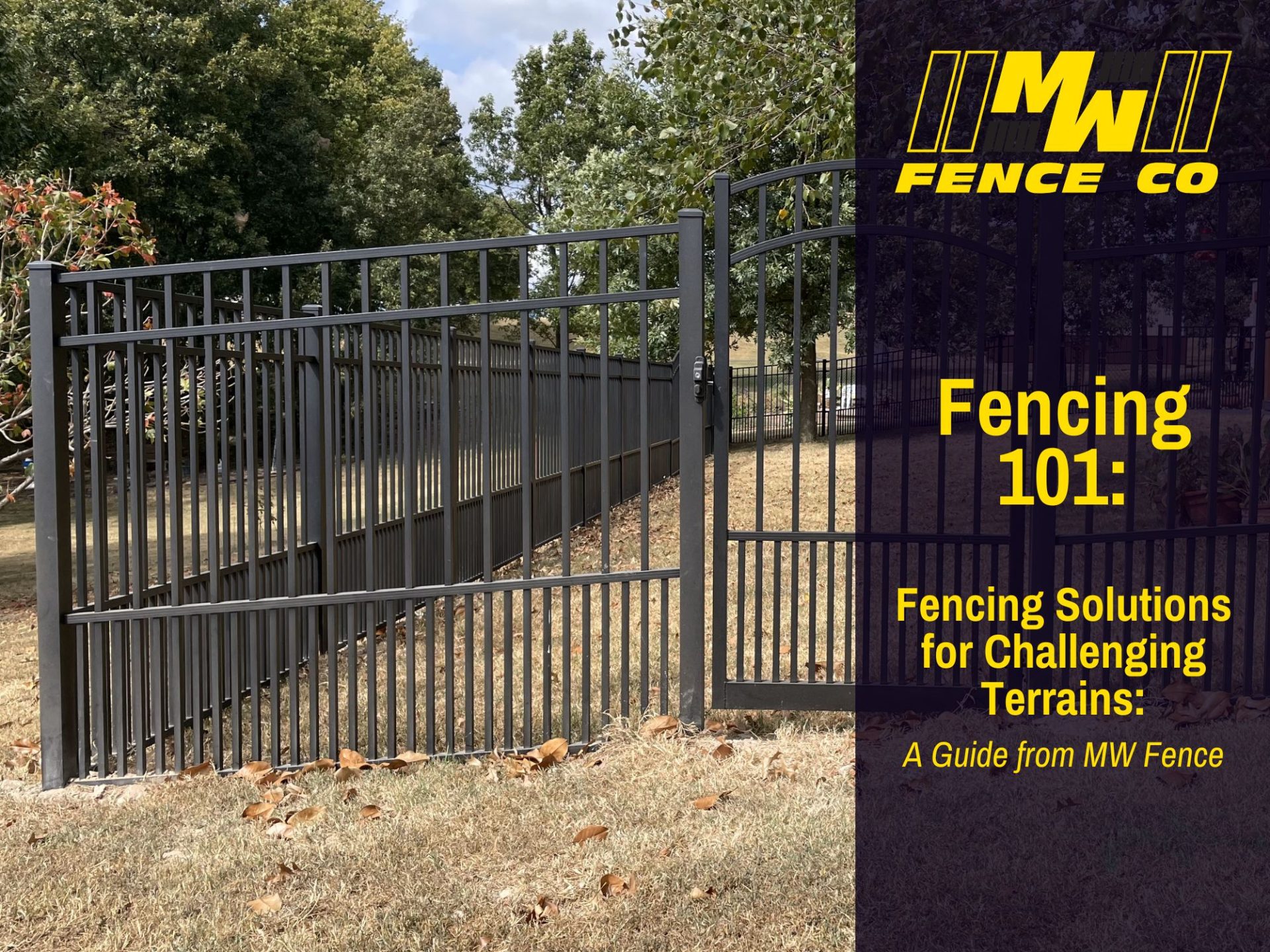When it comes to installing a fence, not all properties are created equal. Different terrain types present unique challenges that require specific fencing solutions. At MW Fence, we understand the importance of choosing the right fence for your property's landscape. Let's explore some fencing options for various terrain types to help you make an informed decision.

Sloped Yards
Sloped yards are common and can be tricky when it comes to fencing. Here are two main approaches:
Stepped Fencing
Stepped fencing follows the contour of the land in a series of horizontal sections. This method maintains a level top line while adjusting to the slope. It's an excellent choice for moderate to steep slopes and works well with various materials, including wood and vinyl. A major drawback to this technique is the larger gap below the fence on the downhill side of the panel.
Racked Fencing
Racked fencing allows the fence to follow the slope's angle while keeping the posts vertical. This technique works particularly well with chain link and some types of ornamental fencing. Racked fences maintain a consistent height from the ground, providing a seamless look.
Rocky Terrain
Rocky ground can make traditional post installation challenging. MW Fence Co uses augers designed to break this rock up into smaller chunks. This works in most cases, but some of the solid limestone in our region requires the use of jackhammers and good old fence building muscle on the end of a rock bar. One good thing about the rock in our region is that it makes for very tight compaction when the post is set with concrete.
Uneven Ground
Uneven terrain requires flexible fencing solutions. Consider these options:
Contoured Fence
Contoured fencing follows the natural ups and downs of the land, creating a wave-like effect. This method works well with most materials like chain link, wood, aluminum, steel, and vinyl, and provides a unique, aesthetically pleasing look. It should flow naturally, absorbing some of the dips and bumps in the terrain, softening the ups and downs so it is pleasing to the eye. This creates different gaps below the fence…where there is a bump, the fence might be tight to the ground, and where there is a dip, there might be a gap of a few inches. The standard gap is about two inches, but will vary with the flow of the fence over the terrain.
Marshy or Wet Areas
For properties with wet or marshy areas, moisture-resistant materials are crucial:
Vinyl Fencing
Vinyl is an excellent choice for wet environments as it resists moisture, rot, and insect damage. It's low-maintenance and can withstand constant exposure to damp conditions, though it may be prone to algae growth. If that’s the case, it’s crucial to keep this power washed off before it sets in and creates permanent stains. The soil is typically soft in these areas as well, requiring deeper holes and taller posts to get into firm ground.
Aluminum Fencing
Ornamental aluminum fencing is another great option for wet areas. It's rust-resistant, durable, and requires minimal upkeep, making it ideal for properties near water bodies or in high-humidity regions.
Windy Locations
For areas prone to high winds, consider these fencing options:
Chain Link with Privacy Slats
Chain link fencing allows wind to pass through, reducing pressure on the fence. Adding privacy slats can provide the desired seclusion while maintaining the fence's wind resistance.
Shadowbox Fence
This style alternates fence boards on either side of the rail, allowing some wind to pass through while still providing privacy. It's an excellent compromise between solid privacy fences and more open styles. Shadow box fences typically provide full privacy when viewed straight-on, but can be seen through when viewed from an angle.
Choosing the Right Fence for Your Terrain
When selecting a fence for challenging terrain, consider these factors:
- Slope degree and consistency
- Soil composition and stability
- Local climate and weather patterns
- Desired level of privacy and security
- Aesthetic preferences and property style
- Local zoning laws and regulations
At MW Fence, we specialize in providing customized fencing solutions for all types of terrains. Our experienced team can assess your property's unique landscape and recommend the best fencing options to meet your needs.
Remember, the right fence not only enhances your property's security and privacy but also complements its natural features. Don't let challenging terrain deter you from achieving the perfect fence for your property. Contact MW Fence today, and let us help you navigate the complexities of fencing installation on any terrain type.



